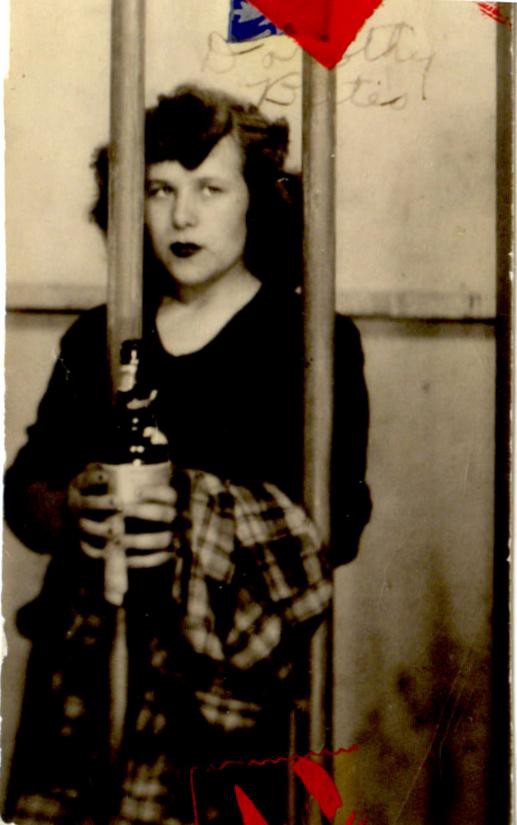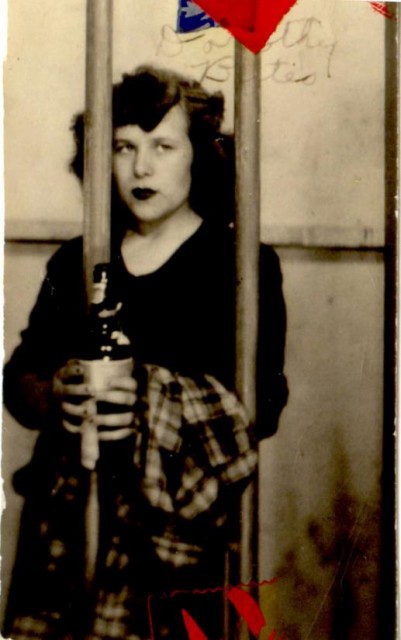Poetry, Neat
by Mairead Small Staid


I like whiskey in my hand for its color, on my tongue for its bite. And I like whiskey in a poem when it raises the stakes, when it threatens to spill or be drunk too quickly, too deeply, for all the wrong reasons. Whiskey can soothe or stoke a poem, casting its amber hue over the lines, lending its light. To top it all off, whiskey is an iamb — so I was surprised to find my hunt for woman-penned poems that mention the liquor specifically more arduous than expected. Sexton has that blistering response to the old song (“Cigarettes and Whiskey and Wild, Wild Women”), but I like her best with gin. Plath’s journals describe the drink fantastically — “Last night’s whiskey with Hamish, glass after glass tossed down, at least five or six, is still strutting latent havoc in my veins, ready to betray me” — but her poems burn without its assistance. I thought Edna St. Vincent Millay might come through, but her “wicked little ways” go unnamed. And while it gives me great pleasure to imagine Misses Moore and Bishop sipping toddies together, their poetry provides no evidence of this perfect scenario.
Luckily, today’s poets aren’t as coy about their drinking habits. Christina Olson’s first collection, Before I Came Home Naked, offers lines like shots to the back of the throat.
In Which Christina Imagines that Different Types of Alcohol Are Men and She Is Seeing Them All (Christina Olson)
Gin was nice enough but had tiny teeth: little ships
of white. Whiskey showed up an hour late,
took me and my one good dress
to a crab shack. We cracked boiled crawfish, swept
our fingers over the tablecloth, left butter behind.
I hid in the back of the coffee shop — crouched
behind whole beans — and scoped out Rum, then left
without introducing myself. Maybe it’s cruel of me
but I just wasn’t feeling exotic. Bourbon
and I had fun, but it was all cigarettes
and ex-wives. Tequila was ever the gentleman, blond
and smooth as caramel. Bought all my rounds
and when I came back from the bathroom he,
my wallet, my car: all gone. The bartender didn’t look
sorry. My mother set me up with Brandy
and I should have known that he’d be the type
to own small dogs. I don’t like poodles.
I saw Gin again last night; both of us out
with other people. His: a redhead. I waved anyway,
and when he smiled, all sharp points
and blooded gums, well, that was when I fell in love.
I’d take that date with whiskey any day. But the spirit is not always such fun; we are talking about poetry, after all. Scouring the work of my favorite contemporary poets, I was warned of drink’s danger to the self (Mary Karr), to the beloved (Dorianne Laux), to the father (Marie Howe). Drunk fathers are always appearing in poems, as in this jelly-jar-sized piece by Keetje Kuipers. (Kuipers’s first collection, Beautiful in the Mouth, is just that, and contains a perfect drunk poem, though the source of her buzz there is unspecified.)
Fairytale (Keetje Kuipers)
Sometimes, when they disappear,
men take a jelly jar of whiskey
with them, and in late summer,
when the river shrinks back
from its skin like a child ashamed
of undressing, the jars surface,
full of sand and crumpled snail shell,
in its seams. The daughters collect them,
and we fill each one — with milk, silver
buttons, crimson leaves losing color —
though never with whiskey. We’re
not trying to bring the fathers back.
And then, of course, there’s whiskey as a way in, a wingman, the chaperone for every up and down of a relationship. There’s meeting for drinks in a dark bar. Falling in love somewhere between the second and third Manhattan. Fighting fueled by too much bourbon, Bulleit(s) flying. Whiskey makes us say things we don’t mean. Whiskey makes us say things we don’t mean to say. (Now is the time to praise the excellent Kim Addonizio, for writing a poem about drunk dialing.) Whiskey and sex just sound good together, especially in the voice of Jill Alexander Essbaum’s unrepentant penitent.
from Apologia (Jill Alexander Essbaum)
Darkness, I have done dread deeds in,
Hearkening to apocalyptic heathen,
Even as I cocked my lips to yours. And I have slept
On floors. And I have crept along on all fours.
And. More. I have lived briskly in nice houses.
I have swigged whiskey in icehouses.
I have been June, July, and August.
I have been riotous when I felt like I must
Or I could be. And I’ve hung on your tree like a ripe fig
Desiring to be plucked. And I’ve flung my body to your bed
Like a white bride pining to be rubbed up against.
Like a suckling child hungry in a viper’s den.
Finally, there is whiskey as solace, as comfort, as a warmth we can swallow and carry in our chests, token against the cold. It’s rather like poetry, in that respect.
from Elegy with a Glass of Whiskey (Crystal Bacon)
When you died, your death was like ice in a glass
of scotch. It melted clear against the tawny
color of the light. It spread and spread like rain
traveling for days across the continent. It left its footprint,
Orion’s peg leg pocking the face of different places:
California, Virginia, North Carolina, Nova Scotia
and everywhere anyone had known you. I did not
know you. You were a night sky, you were winter
in its shabby coat. You were a hinge on a frozen door
open now, easy now. There is a light on inside the house.
I’ll go in and live in the yellow warmth. I’ll pour a drink;
the words will wait, are waiting, to be born.
Mairead Small Staid drinks and reads, in that order, in Ann Arbor.
Previously: “Talking to Peggy Noe Stevens, the World’s First Female Bourbon Master Taster”
Photo via Tanya Dawn/Flickr